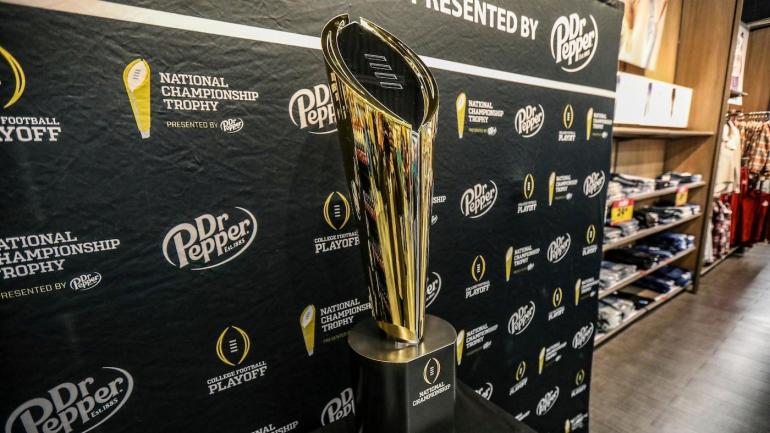
The 10 FBS conferences and Notre Dame finalized a new $1.3 billion television contract for the College Football Playoff with ESPN on Friday that will go into effect in the 2026 season, sources confirmed to CBS Sports' Dennis Dodd. The deal was solidified after the conference leaders and Notre Dame came to terms on a revenue distribution model.
The new contract is expected to pay the Big Ten and SEC 29% of the upcoming contract, sources told CBS Sports, which works out to approximately $22 million per school. The ACC will receive 17% ($13-14 million per school) and the Big 12 will sit around 15% ($12 million per school). The numbers represent a raise across the board as all Power Five institutions receive approximately $5 million per school in the previous contract.
The Group of Five will split 9% of the contract, but the number may not be split evenly among the teams and five conferences. The independent schools will split 1%, while Notre Dame will get the bulk at around $12 million.
Still to be determined is whether the CFP will feature a 12- or 14-team format beginning in 2026. On the table currently is a 5+9 model that would award automatic bids to the four highest-ranked conference champions plus the highest-ranked Group of Five champion.
Various models surrounding automatic qualifiers are also being considered. Negotiations have recently shifted toward a CFP model that's heavier on at-large berths after the Big Ten and SEC requesting its champions be guaranteed the two first-round byes on an annual basis under a 14-team format drew a considerable amount of backlash.
During a conference call confirming the deal on Friday, CFP executive director Bill Hancock admitted the process of finalizing a format could take a while. In fact, Hancock indicated the decision on whether to land on 12 or 14 teams could come after the 2024 season. Through the entire process, sources have told CBS Sports that "everything" is on the table in regards to format and structure for the 2026 season.
"The number of teams will be part of the discussions at some point in the future," Hancock said. "I've heard people say it might help to assess what happens this year ... I've heard other people say, 'Maybe we just ought to go ahead.' "
Uncertainty over the timeline comes after it being hinted over a month ago that we'd have clarity on a finalized format by this time in March.
"The timetable is to be determined. As I talk to people, some have said, 'Maybe we ought to wait.' Others have said, 'Let's go ahead,'" Hancock said. "Just like everything that happens in college football, there are different ideas that have to be processed. I want to emphasize there is no urgency to the format conversations."
With the Big Ten and SEC set to boast 34 of college football's top brands beginning in 2024 amid expansion, they have gained outsized influence in the formatting conversations. Still, the group's ability as a whole to reach a financial deal viewed as mutually agreeable for all 10 FBS conferences is a sign that perhaps an agreement can be struck with regards to format sooner than later. The Big Ten and SEC will have much of the control over finalizing the new format, according to ESPN.

















